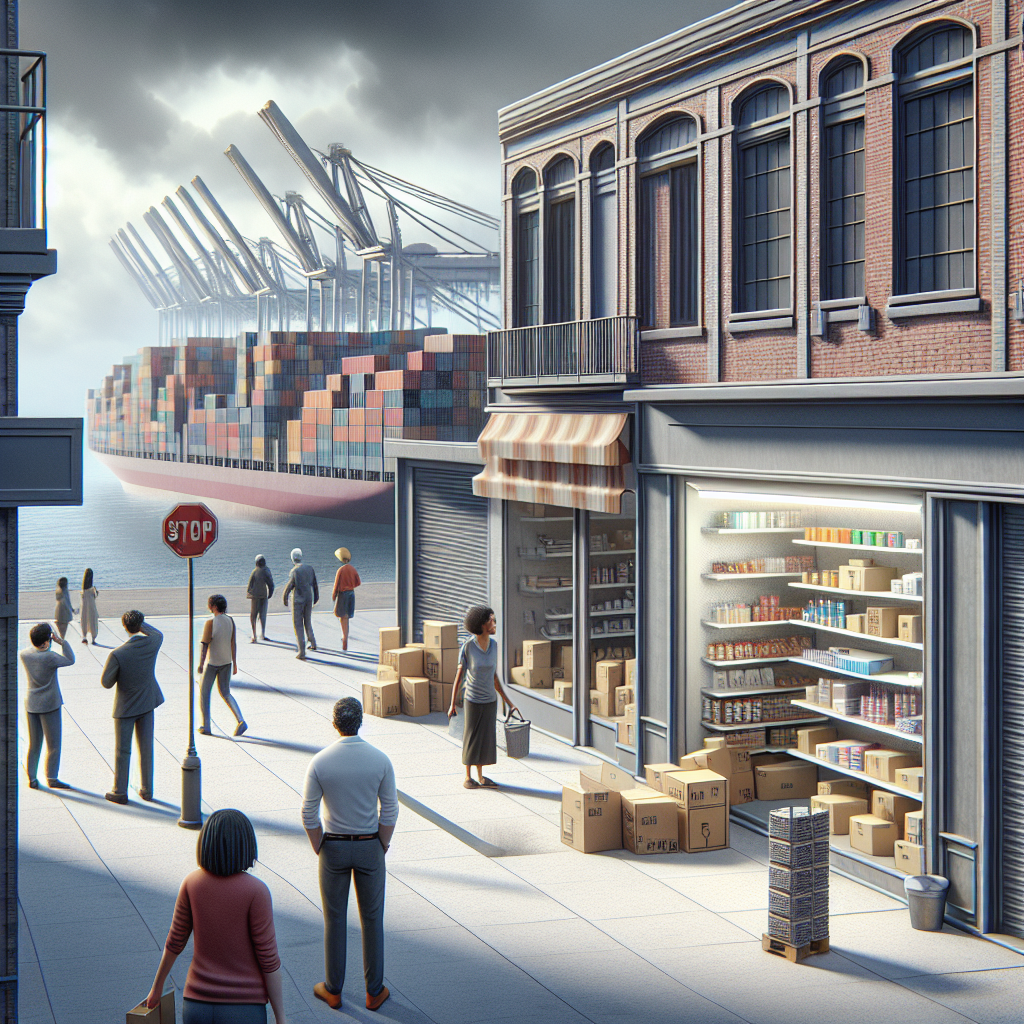Unsustainable Trade War with China and the Truth About Coming Wave of Retail Shortages
As the trade war between the United States and China escalates, major retailers are sounding the alarm bells about potential shortages on store shelves. The tariffs imposed by the Trump administration, aimed at curbing Chinese imports, have created a ripple effect that is starting to impact consumers directly. But how concerned should shoppers really be about the looming threat of empty shelves?
The situation has become increasingly precarious for retailers who rely heavily on Chinese goods. Companies like Walmart, Target, and Home Depot have openly expressed their concerns regarding inventory levels due to the tariffs. These retailers, known for their vast selection and competitive pricing, are now faced with the prospect of rising costs and diminished supply. With the holiday season approaching, the urgency of this issue cannot be underestimated.
The tariffs, which have increased the cost of various goods imported from China, have created a challenging environment for retailers. According to a recent analysis, the average consumer could see price increases of up to 25% on certain products. Items that consumers often take for granted, like electronics, clothing, and household goods, may become increasingly expensive or scarce. This could lead to a shift in consumer behavior, as shoppers may begin to hoard certain items out of fear of shortages.
One stark example of the impact of these tariffs can be seen in the electronics sector. Companies like Apple, heavily reliant on Chinese manufacturing, have warned that increased costs could lead to higher prices for consumers. If consumers feel the pinch in their wallets, they may choose to delay purchases or opt for cheaper alternatives, further exacerbating the situation for retailers.
Retailers are also facing logistical challenges due to the trade war. The uncertainty surrounding tariffs has disrupted supply chains, leading to delays in shipping and increased transportation costs. Retailers may struggle to maintain adequate stock levels, especially for seasonal items that are typically in high demand during the holidays. As a result, consumers may find themselves confronted with empty shelves at the very time they are looking to purchase gifts and other essentials.
Moreover, the ongoing trade tensions have raised questions about the long-term sustainability of relying on Chinese imports. With many companies reconsidering their sourcing strategies, there could be a shift toward diversifying supply chains. This may involve relocating production to other countries or even bringing manufacturing back to the United States. However, such shifts take time and can be costly, meaning that the immediate impact on consumers may still be felt for the foreseeable future.
In the face of these uncertainties, some retailers are taking proactive measures to mitigate the effects of the trade war. For instance, many are ramping up their inventory levels in anticipation of increased demand during the holiday season. However, this strategy comes with its own set of challenges, as overstocking can lead to increased holding costs and potential markdowns if products do not sell as anticipated.
Consumers should also be aware of the psychological impact of the trade war on shopping behavior. Fear of shortages can lead to panic buying, as shoppers rush to purchase items they perceive may soon be unavailable. This type of behavior can create a self-fulfilling prophecy, leading to actual shortages and empty shelves. Retailers are urging consumers to remain calm and make informed purchasing decisions, rather than succumbing to the panic that can arise during times of uncertainty.
In summary, the trade war with China is creating a precarious situation for retailers and consumers alike. While it is essential to be aware of the potential for empty shelves and rising prices, it is equally important to remain level-headed in the face of uncertainty. Retailers are working diligently to navigate these challenges, but the outcome remains uncertain. As consumers, staying informed and making thoughtful purchasing decisions will be crucial in the coming months.
Ultimately, the sustainability of the trade war and its impact on retail will hinge on ongoing negotiations and the willingness of both nations to find common ground. In the meantime, shoppers should brace themselves for the possibility of changes in product availability and pricing as the situation continues to unfold.
retail, trade war, China tariffs, consumer behavior, supply chain
